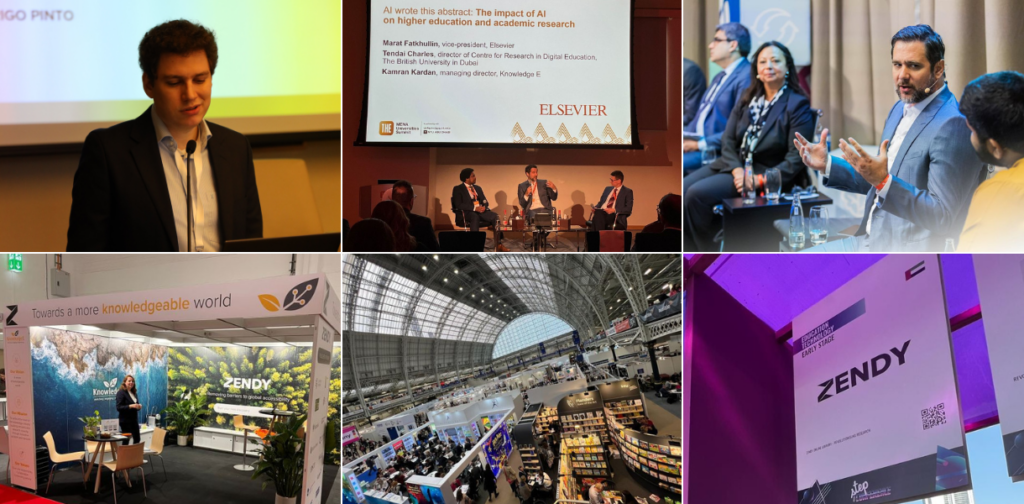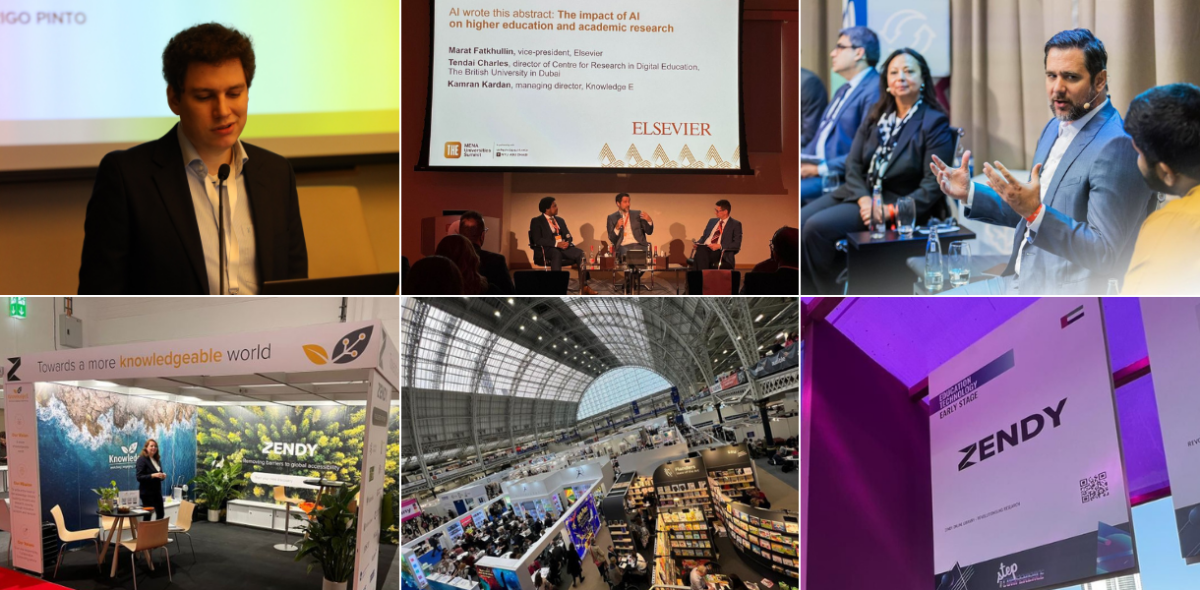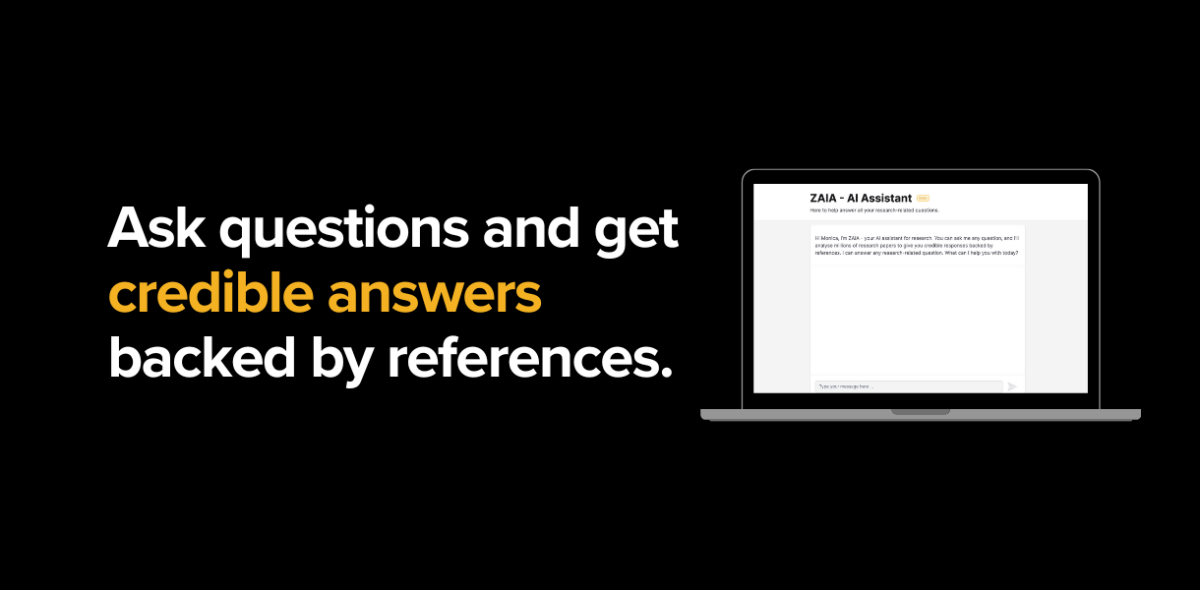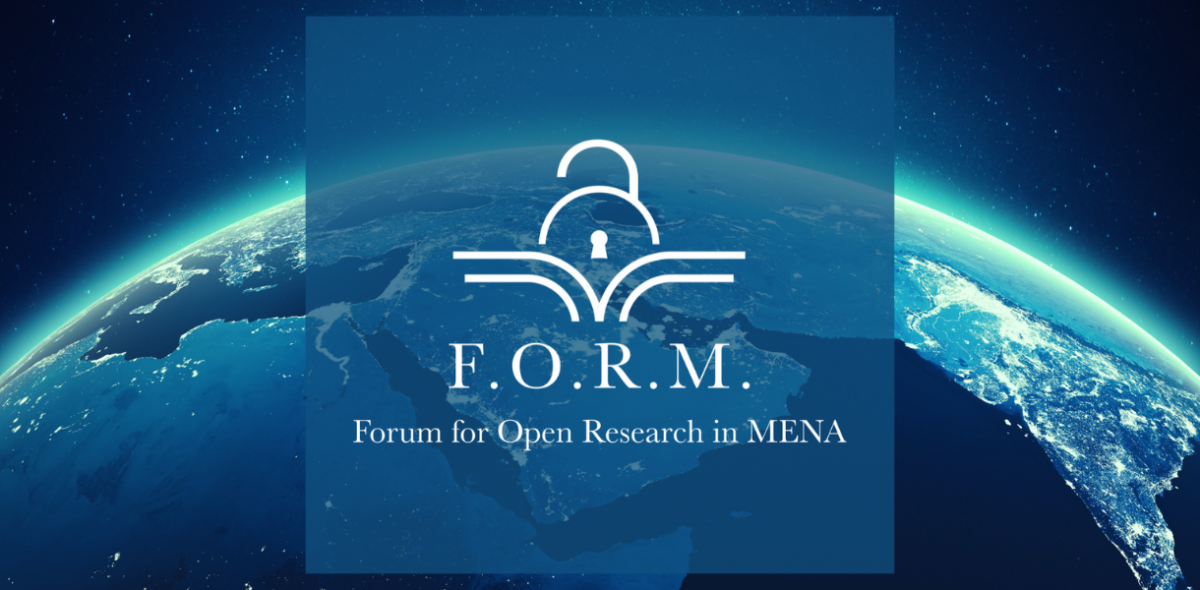
Welcome to Zendy’s annual recap, where we reflect on another year of milestones. The ever-evolving landscape of scholarly communication this year was anything but stagnant, dominated by themes of openness, integrity, inclusion, and innovation. As we reflect on 2023, we’re proud to have welcomed new publishers, attended events, celebrated milestones with our users, and released some really great features to continue to support our users on their research and learning journey.
How we enhanced our user experience
- We developed and launched ZAIA
Our most anticipated and exciting feature launch this year was ZAIA – Zendy’s AI assistant. Ask any question, and ZAIA will analyse millions of researchers papers to give you credible answers backed by references. If you haven’t already, log in to your Zendy account and put ZAIA to the test!
- We launched Zendy Plus globally
We launched our global subscription plan at Frankfurt Book Fair 2023! The plan allows students, researchers and professionals globally to access scholarly material from leading publishers for the monthly price of a single research paper. This was a key milestone for us as our previous Zendy Plus plan was limited to several countries. Having an affordable and equitable access model strengthens our mission to remove the barriers to scholarly literature.
- Keyphrase Highlighting
We released an AI-powered keyphrase highlighting tool. Instead of having multiple tabs open, looking for definitions and further research on a concept, Zendy highlights keyphrases in just one click to allow readers to grasp key research concepts quickly.
- Summarisation
We also released an AI-powered summarisation tool. This tool summarises lengthy research papers into a concise paragraph on demand. This significantly helps readers save time during literature review.
- Reading Lists
Earlier this year, we launched a reading list feature. Reading lists can be used to organise and categorise research papers according to projects, subject areas or whichever method the reader finds simplest to navigate through.
- New UI coming soon
The team has been working on a brand new UI to transform the user journey on Zendy. Zendy will reveal a new fresh look very soon, with additional personalisation features to further enhance the discovery of scholarly literature.
Milestones we marked with our users
- Welcomed over 400,000 readers
We’re proud to support over 400,000 readers from 200 countries and territories on Zendy! We thank our valued community for their consistent support. The trust of our community fuels our mission to keep striving for a world where equal access to research is a reality.
- Over a 6 million searches & 2.5 million downloads
We have seen over 6 million keywords searched on the platform. Searches ranging from the neural networks, to enteric bacteria, and social impact – we’re proud to support a diverse community of students, researchers, and professionals. We marked over 2.5 million downloads on Zendy! As we continue to work with new publishers, we look forward to bringing an even better selection of content to our readers.
We exhibited, presented, and attended many events!
- Presented at Charleston Hub 2023
Our Partner Relations Manager, Sara Crowley Vigneau presented at Charleston Hub in partnership with IGI Global. The presentation titled ‘On the Open Road: The story of an OA publication through the stakeholder journey’ looked at the journey of a publication through the eyes of each custodian.
- Exhibited at STEP 2023
Earlier this year, our team exhibited Zendy at STEP 2023. Showcasing our Zendy alongside various startups inspired the team to learn from other tech products in the Middle Eastern region.
- Sponsored and presented at the Forum for Open Research MENA
We were proud to sponsor the Forum of Open Research MENA, which is an event that highlights and advances open access initiatives in the Arab region. Our head of technology, Rodrigo Pinto, presented his insightful research paper titled, “Leveraging Big Data and Machine Learning to Enhance Open Data Quality: Insights for Developing Regions.”
- Exhibited at Frankfurt Book Fair
It was a pleasure to exhibit and connect with new and existing partners at Frankfurt Book fair 2023. We hosted a launch event at this year’s fair, showcasing our Zendy Plus global subscription offering. Thanks to all who attended!
- Presented at the MENA Panel
Our co-founder, Kamran Kardan spoke at The MENA panel titled, “AI wrote this abstract: The Impact of AI on higher education and academic research.” The discussion touched on the impact of AI on higher education, dissecting how it affects teaching, learning and ethical guidelines.
- Attended London Book Fair
We attended the London Book Fair earlier this year. Our team met with many of our partners and other key leaders in scholarly communication. We look forward to exhibiting at next year’s fair.
- Exhibited at UKSG 2023
We also exhibited at our first UKSG conference this year. It was a really great experience connecting with and learning from some of the best minds in our global knowledge community.
- Joint Webinar with InTechOpen
We partnered with InTechOpen to host a joint webinar titled, “Emerging Technologies – Partnering for Accessibility, Discoverability and a Sustainable Future.” Zendy’s Head of Marketing, Monica Chinsami, presented on the panel alongside Prof Tatiana Morosuk, Editorial Board Member of IntechOpen’s Green Energy and Environmental Technology (GEET) journal, and Dr Jo Havemann, Co-founder of AfricArXiv.
We welcomed new partners
- IEEE
In September, we integrated IEEE’s open access research content. This partnership has brought significant technological research across various areas of study, like aerospace, robotics and more on Zendy.
- IT Governance
In June, we partnered with IT Governance, which is a leading publisher of books on information technology, cybersecurity and governance.
- IGI Global
We partnered with IGI Global, a leading publisher focused on research across different specialisms under the vast umbrella of Science. This partnership saw the addition of leading e-journals as well as book content across subject areas including Business & Management; Scientific, Technical, Medical (STM); and Education.
- Bristol University Press
We also signed an agreement with Bristol University Press. BUP is well known for producing scholarship that advances theory, knowledge and learning within and beyond academia.
- InTechOpen
We also welcomed IntechOpen to our partner community. InTechOpen specialises in journals and books in the fields of Medicine, Technology and Science.
A couple of things we published
- Published SDG Report
This year, we published an SDG report in partnership with Knowledge E. This comprehensive report helps us keep track of our efforts in accelerating the aims of the UN’s publishers compact. With a focus on SDG 4 (Quality Education) and SDG 10 (Reduced Inequalities), Zendy progresses to ensure that academic research is accessible to everyone everywhere.
- An analysis of OER’s on Research Information
Our co-founder, Kamran Kardan, wrote a piece on the future of Open Educational Resources and how the industry is preparing for them. In summary, with the uncapped potential of responsible AI, the future looks bright and full of innovative opportunities to positively impact societal progress.
We look forward to continuing our journey together in 2024, and we thank you for your unwavering support.




